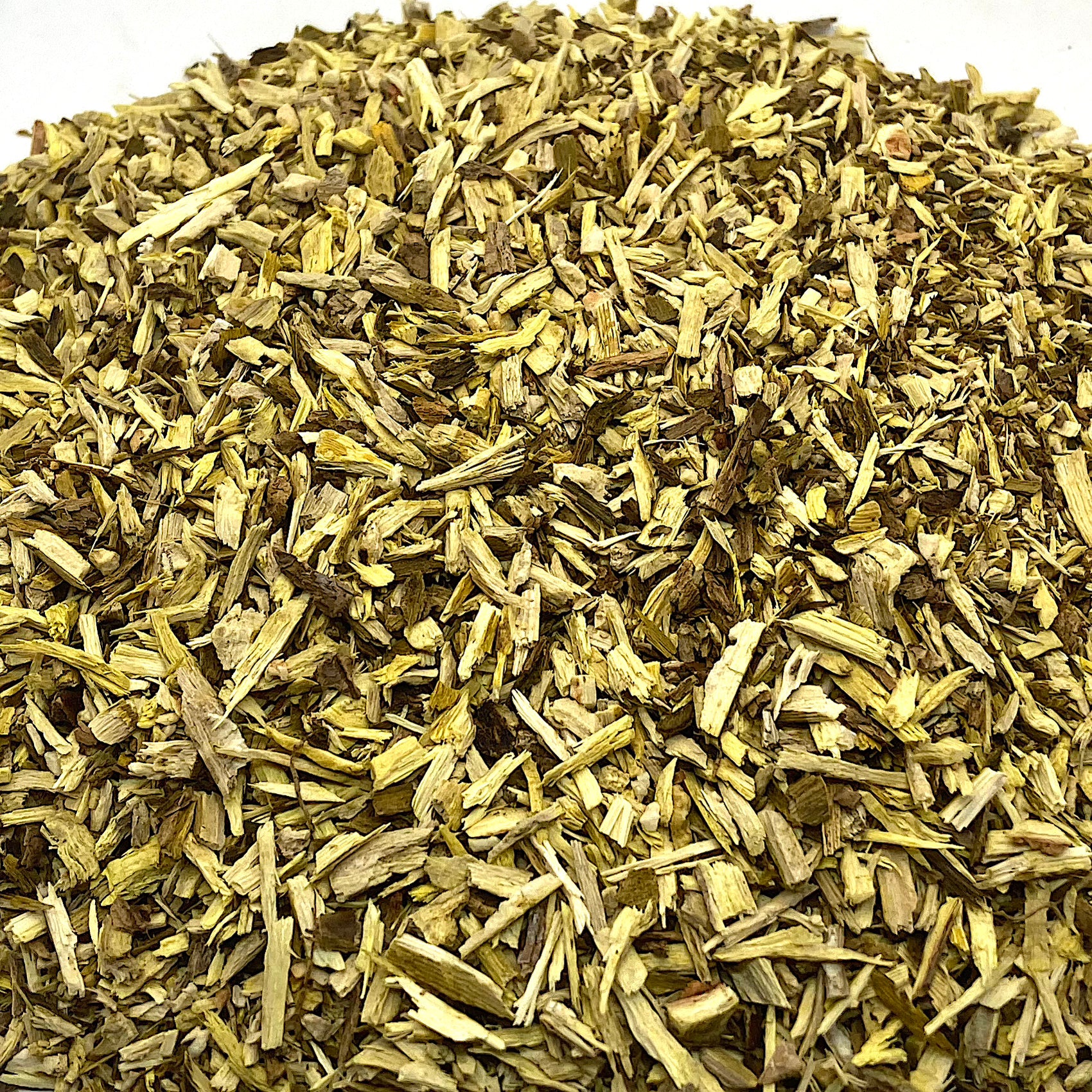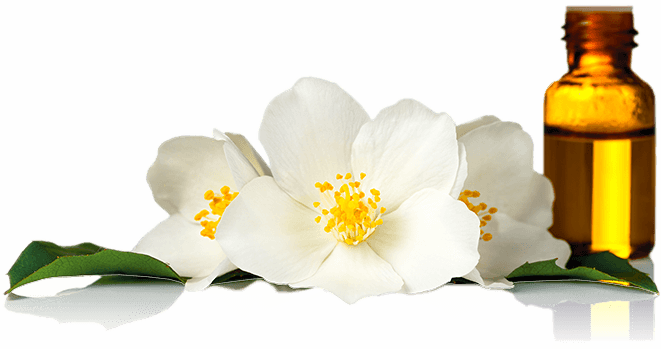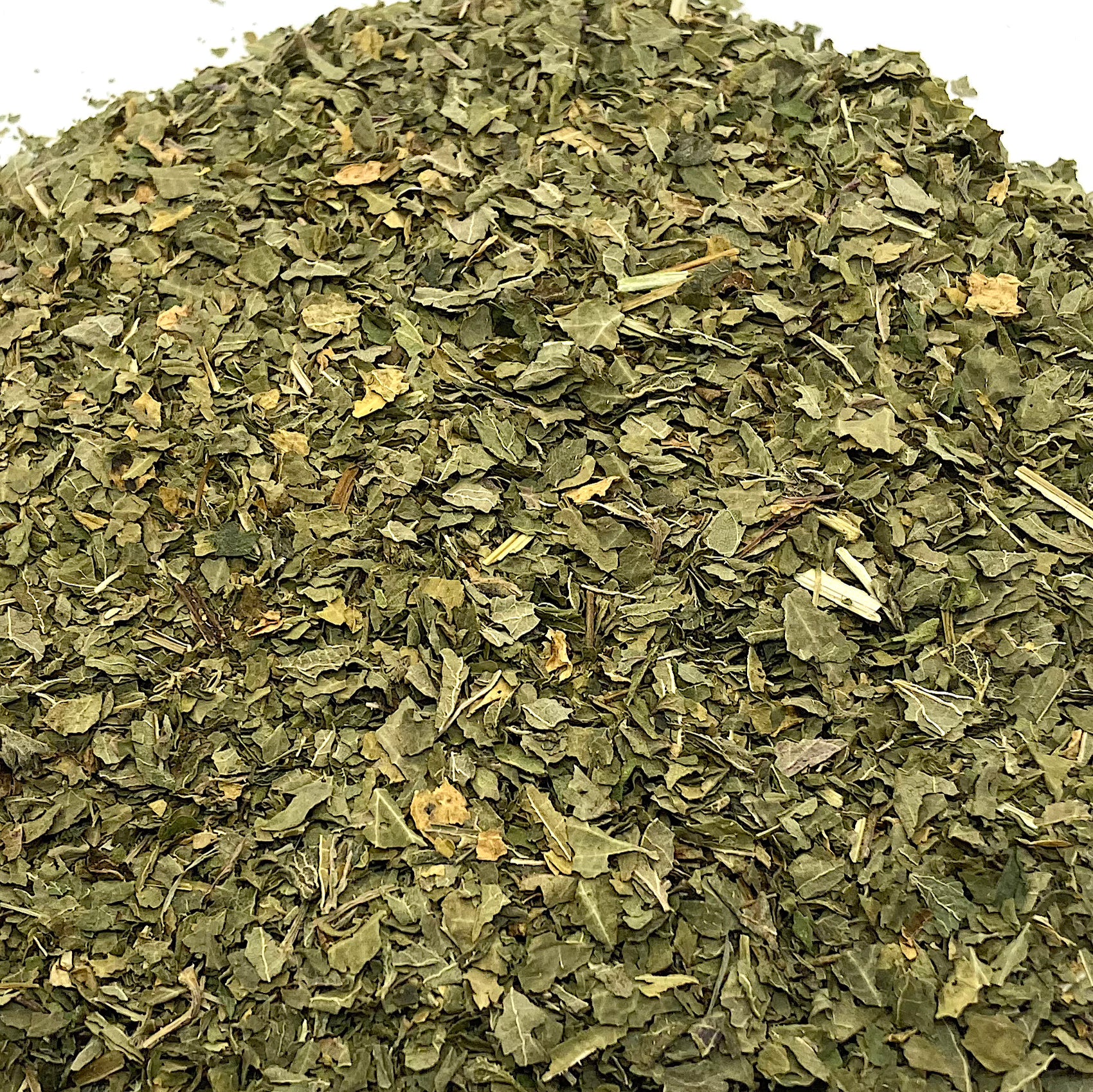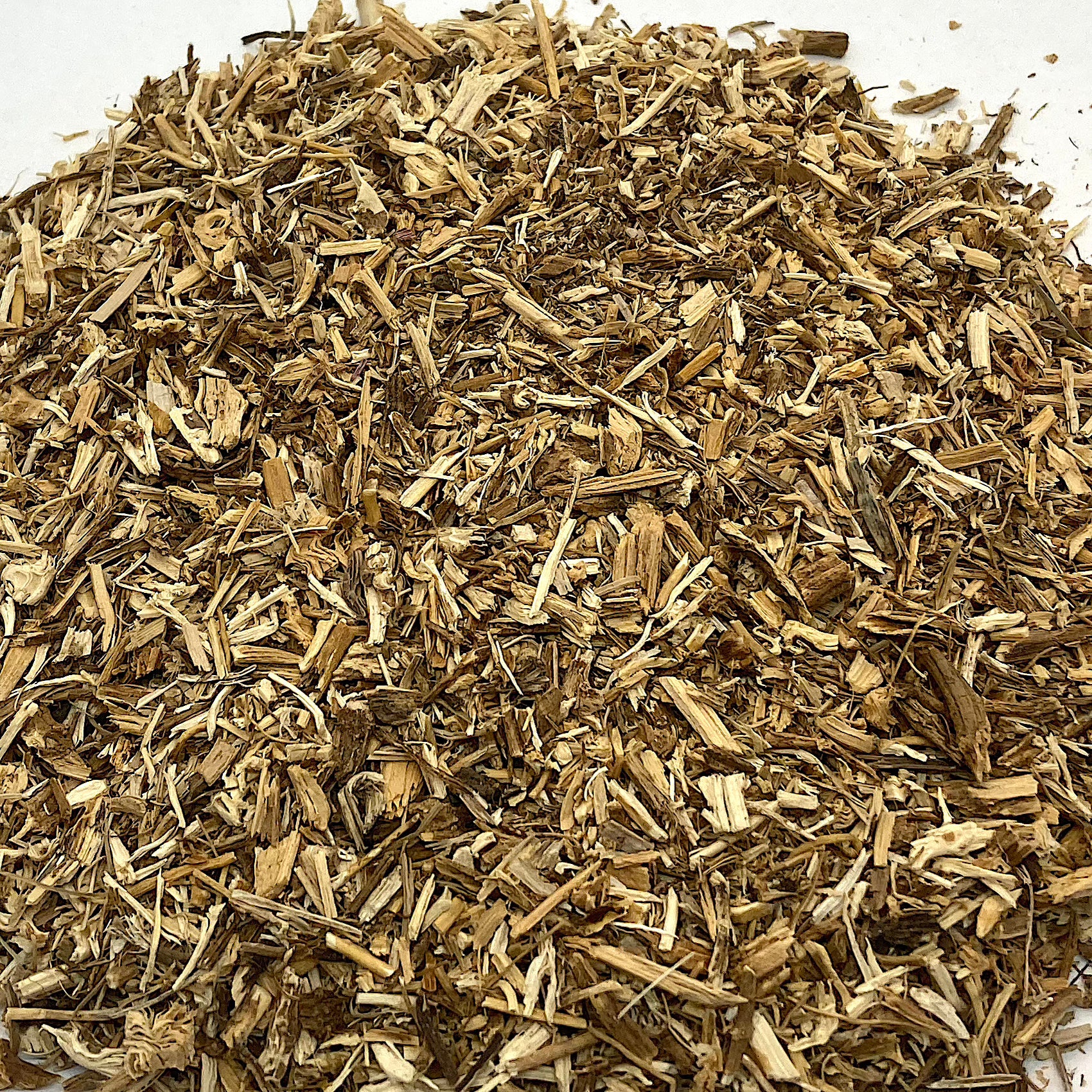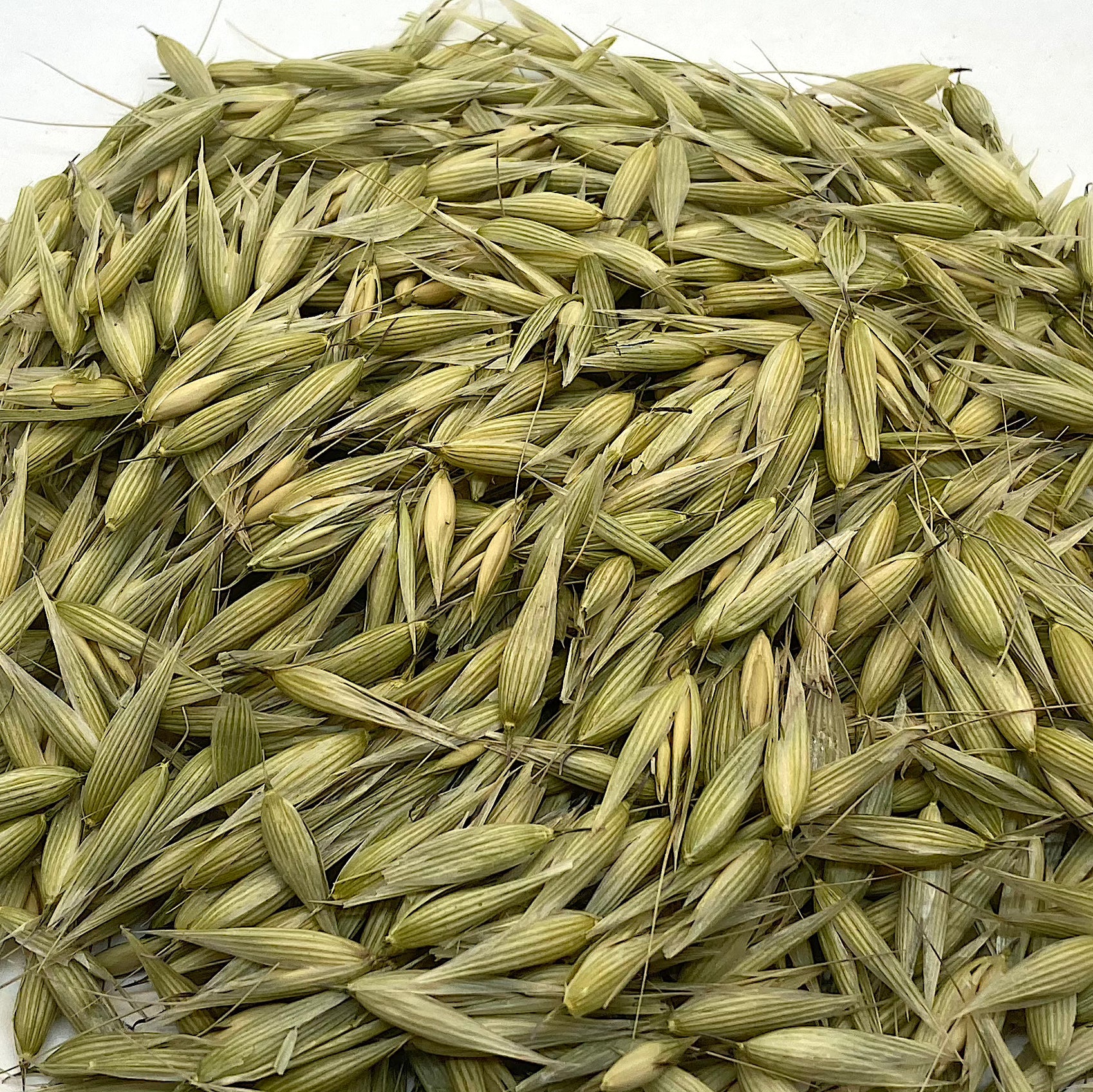Description
USA. Oregon Grape (Berberis aquifolium) Root, Cut and Sifted, Wild Harvested
Common names: Mahonia, Mountain Grape, Mountain Holly, Creeping Holly Grape, Island Barberry, California Barberry, Mahonia Faux Houx, Mahonia Pinnata
Family: Berberidaceae
Oregon Grape, native to western North America from Northern California to Southeast Alaska, is an evergreen shrub growing up to 3 feet high, with clusters of yellow flowers in the early spring that are followed by dark blue berries. It grows mostly in forests, especially with Douglas firs, and in mountain brushlands. Handsome and hardy, it has become a popular landscaping plant.
Its berries are included in traditional Pacific Northwest Native diets. The berries have also been used to make a purple dye, and bark from the root and stem to make a yellow dye. Natives brewed the roots to treat stomach disorders, coughs, skin and and mouth sores, and as a “blood medicine.”
Like Goldenseal, California Poppy, and several other herbs, Oregon Grape’s root and bark contain berberine, a stellar anti-inflammatory and antimicrobial alkaloid with proven effectiveness against many infections: bacterial, fungal, and parasitic.
Herbalists also regard Oregon Grape as a liver tonic, useful for enhancing nutrient absorption and immune function. The beneficial effects on the liver may partly explain its protective effects against natural and chemical toxins, and berberine is also protective for the brain, kidney, heart, and lungs.
While many herbs can be considered functional foods to add to the daily diet, this is a strong medicine that is best used on an occasional or intermittent basis, in consultation with a trained practitioner. Oregon Grape may act as a uterine stimulant and should be avoided during pregnancy.
*These statements have not been evaluated by the FDA. These products are not intended to diagnose, treat, cure or prevent any disease.

